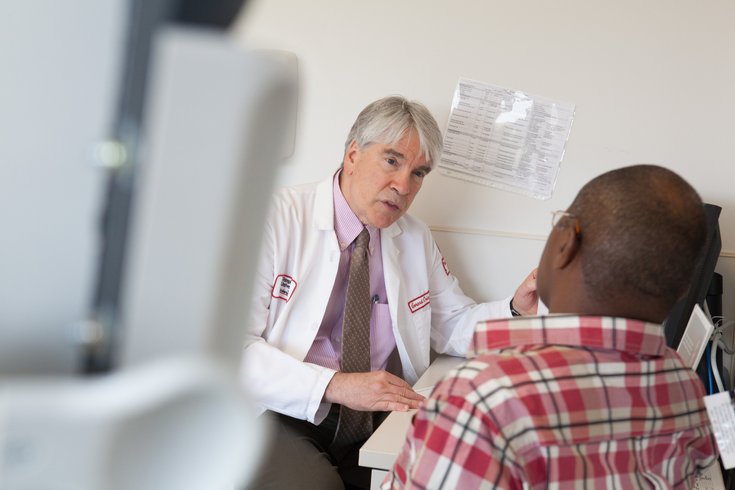
February 23, 2024
 Provided Image/Temple Health
Provided Image/Temple Health
Dr. Gerard Criner talks to a patient receiving a lung cancer screening through Temple Health's Healthy Chest Initiative.
If you're 50 and have a history of smoking – even if you quit a long time ago – you're probably still due for a lung cancer screening.
Lung cancer remains the deadliest cancer across all age groups, according to the American Cancer Society's latest annual report. Projections indicate that cigarette smoking will cause more than 101,000 lung cancer deaths this year, with another 3,500 deaths linked to secondhand smoke.
Overall, the survival rate from lung cancer has increased nationwide in the past five years by 22% – to 26% – making early detection crucial to recovery.
The U.S. Preventive Services Task Force recommends annual lung cancer screenings for people ages 50 to 80, who currently smoke, who quit in the past 15 years, or who have a 20 pack-year smoking history. The task force recommends discontinuing screening once a person develops a health problem that substantially limits their life expectancy or the ability or willingness to have curative lung surgery, according to the guidelines.
Temple Health's Healthy Chest Initiative offers a way for people to get simultaneously screened for various chest conditions during their annual lung cancer screening – to potentially catch multiple diseases early when treatment may still be viable.
"We're trying to maximize the amount of value from a lung cancer screening," said Dr. Gerard Criner, head of the Temple Healthy Lung Initiative.
Approximately 6% of eligible people are regularly screened for lung cancer using low-dose computed tomography.
Criner wants to improve screening rates in the Philadelphia area to detect nodules that may require lung cancer treatment. Temple's screening also may pick up signs of other serious conditions such as chronic obstructive pulmonary disease, emphysema, osteoporosis and heart disease.
Nurse navigators prescreen, communicate results and arrange further care for patients, if needed, making the process less intimidating and easier to go through. Lowering barriers to screening, especially for minority groups, is one of Temple's goals, Criner said.
Statistics show that Black people with lung cancer were 15% less likely to receive early diagnosis and 16% less likely to survive five years than white counterparts, according to the American Lung Association's 2023 report.
Temple's nurse navigators also connect patients with support groups and smoking cessation programs, among other resources. People can schedule a screening at one of Temple's five locations by calling 800-TEMPLE-MED or 800-836-7536